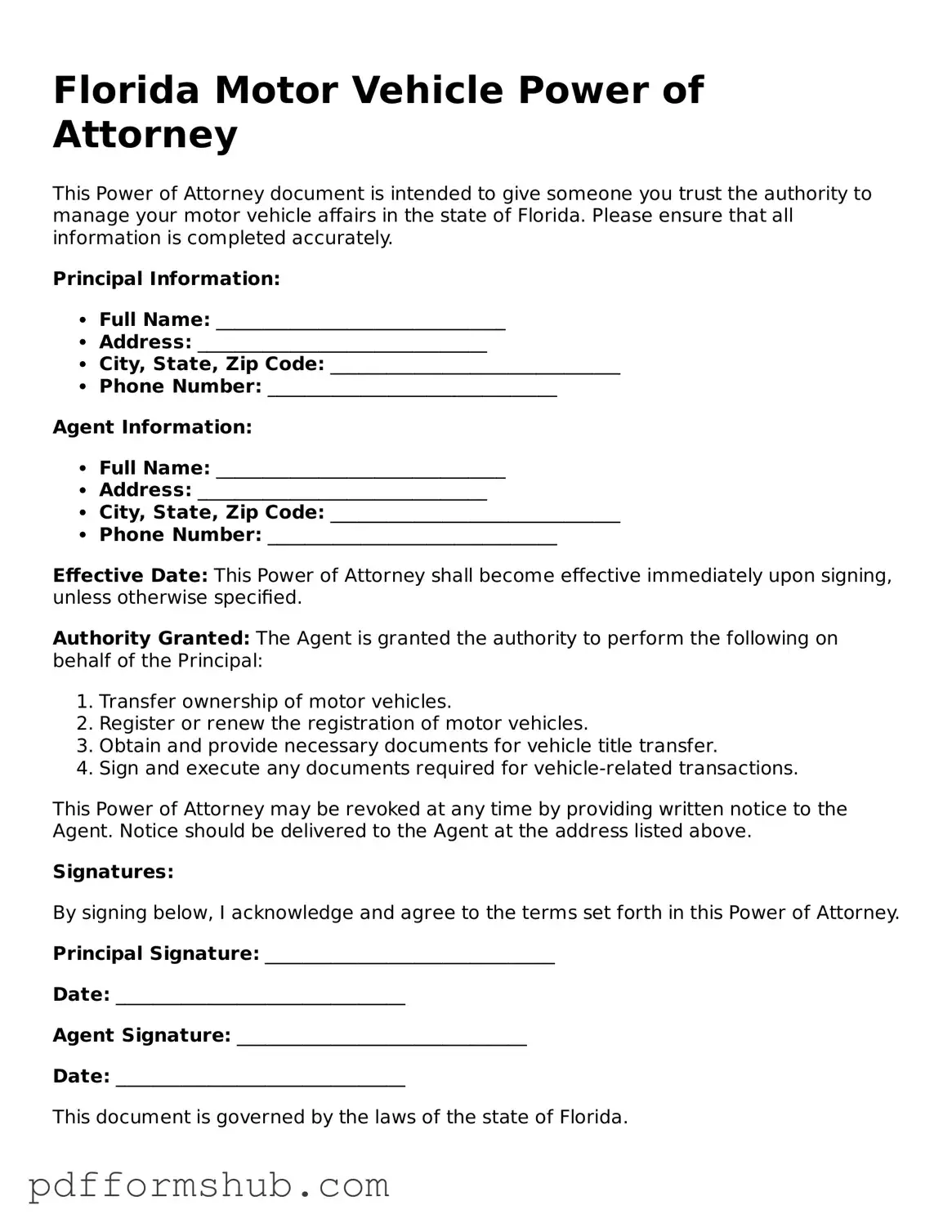Attorney-Verified Motor Vehicle Power of Attorney Form for Florida State
The Florida Motor Vehicle Power of Attorney form allows an individual to designate another person to act on their behalf regarding motor vehicle transactions. This legal document ensures that the appointed agent can handle tasks such as registering, transferring, or titling a vehicle. To streamline your motor vehicle dealings, consider filling out the form by clicking the button below.
Customize Form

Attorney-Verified Motor Vehicle Power of Attorney Form for Florida State
Customize Form

Customize Form
or
Free PDF Form
Short deadline? Complete this form now
Complete Motor Vehicle Power of Attorney online without printing hassles.